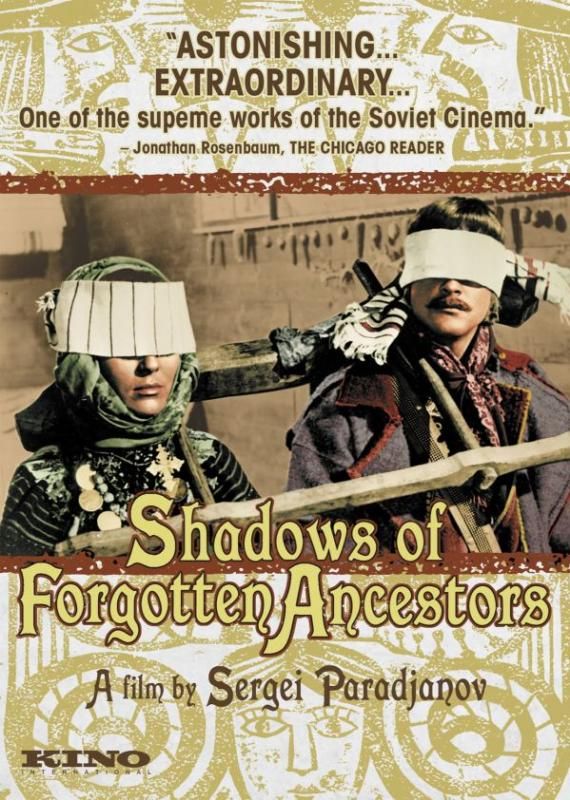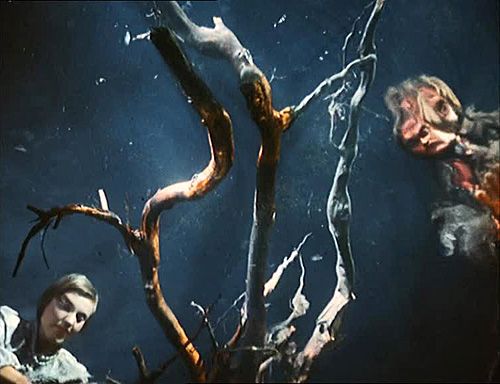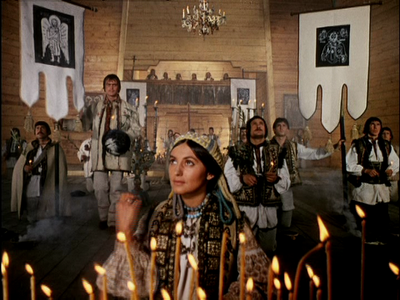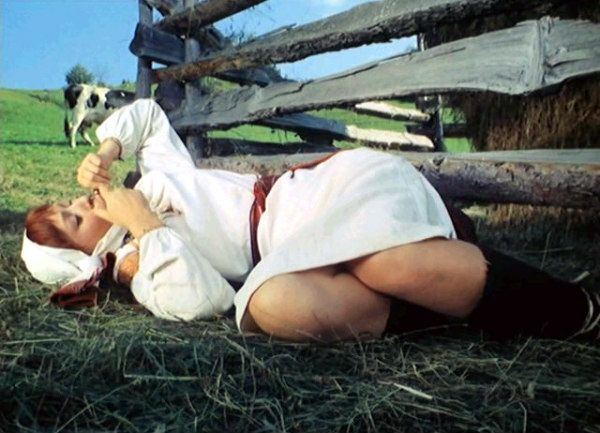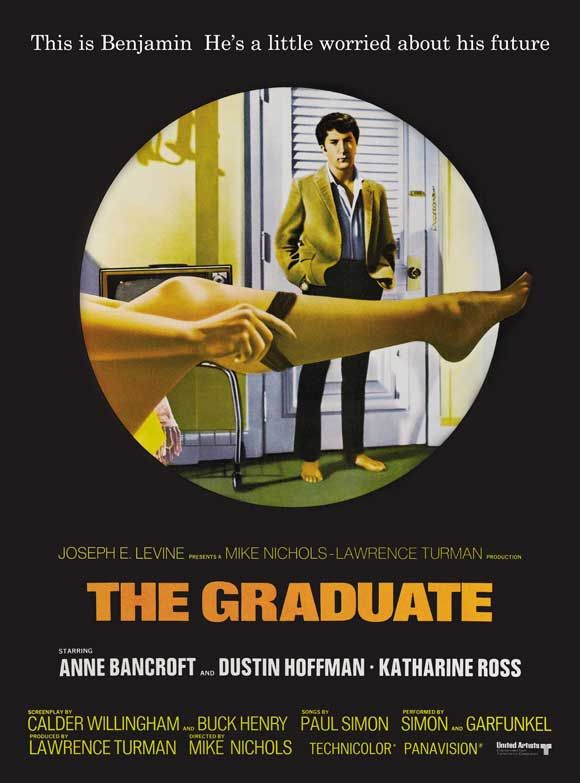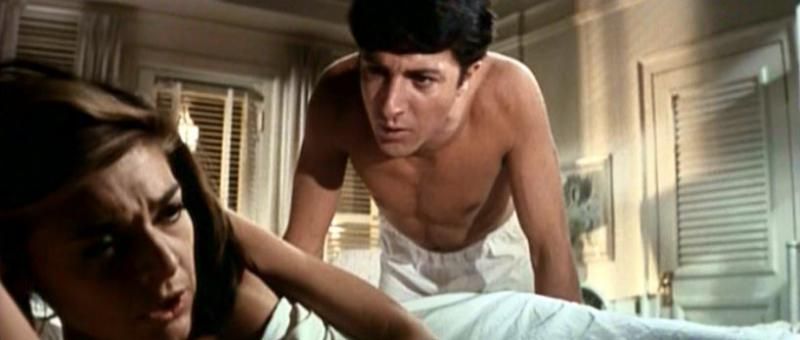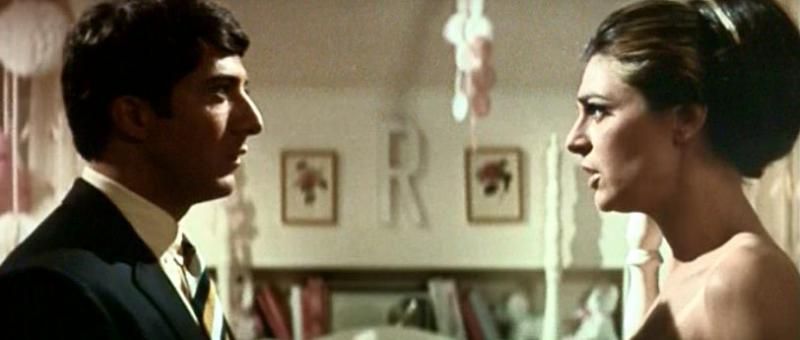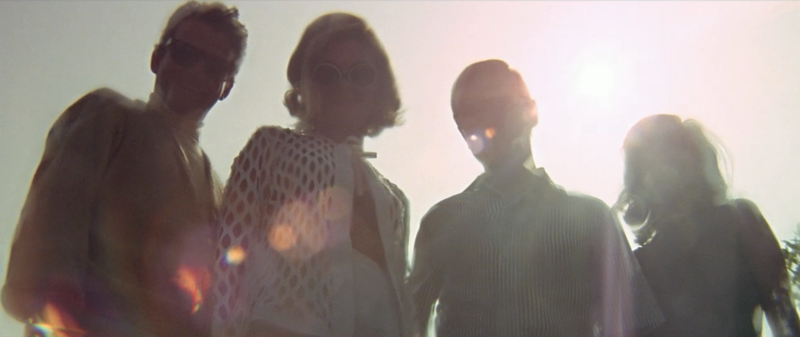Hold
Me While I’m Naked
1966
Director: George Kuchar
Starring: Donna Kerness, George Kuchar
I
just plain don’t get, or like, experimental films. Whenever I see that tag of “avant-garde” on a
flick, I tense up. Oh dear lord, what
will this one do to me now? But 1001
Movies always has a lesson or two to teach me about never discounting an
entire genre of films. There are always
exceptions to the rules, and I can’t help but enjoy Hold Me While I’m Naked. Well, as much as I could enjoy an
experimental film.
The
scant plot of this scant film (it clocks in at 15 minutes) is of a director
(Kuchar) trying to make a movie. One of
his lead actresses pulls out halfway through the shoot (Kerness) so he has to
find a replacement. Meanwhile, off
screen, we see said actress having sexy fun times with a significant other
while our poor director leads a rather solitary, lonely life.
And
that’s it. I mean, at 15 minutes, it’s
barely there. But I’ve seen films where
15 minutes can feel like a chore, and it doesn’t here. In fact, I’d even go so far to say I wouldn’t
mind this particular film being a bit longer.
Wow, did I really just say that?
Why
is this so much more amusing than a typical sixties experimental film? Simple: George Kuchar. As both director and star, this film is
clearly HIS, and it’s evident from the opening that Kuchar has a huge sense of
humor. His voiceover as he coaches his
actress through her scenes makes me smile.
And his dialogue as he’s shooting a love scene later just slays me with
its bizarre juxtapositions: “Tomorrow we do the massage table scene and maybe
we’ll do the scene where you’re found naked in a fallout shelter and there are
those radioactive welts on your thigh.”
Wait… WHAT? Radioactive
welts? Fallout shelter? From a love scene? I honestly can’t help but laugh at that sort
of ridiculous swing in imagery. The circus-esque
music in the opening credits sets the stage for such an approach.
Kuchar
also makes me laugh later in the film when we continually cut back and forth
between couples having sexy times in a shower and him, Kuchar, taking a shower
alone, by himself, and banging his head against the wall. It’s a bit sad, and there’s definitely a
poignancy there about a man sacrificing everything for his “art” even though
the art is a bit crap. It’s rather
reminiscent of Ed Wood, really. And yet,
despite the pathetic nature, it’s also funny.
Going back and forth between two people obvious each enjoying their time
together to Kuchar banally taking off his socks and stepping in his tiny
shower… really, it’s funny. At least to
me.
I
first saw Hold Me While I’m Naked at the Dryden when they did an evening
of screening art house/experimental shorts from the sixties and seventies, and
this was before I could see these shorts on youtube or anyplace else. This was my only chance to see these films. There were several Andy Warhol films on the
docket that evening, and Blonde Cobra was shown as well. Hold Me While I’m Naked was shown by
Kuchar, as was his later short from the seventies, I, An Actress. I am sure that this is why I’m rather keen on
Hold
Me While I’m Naked – because when you spend an evening watching Blonde
Cobra and Andy Warhol, and then you watch something by George Kuchar,
you leap all over that last stuff.
Kuchar’s sense of play, optimism, and humor, really shines through
amongst all the ridiculous posturing of the other shorts. And I think I, An Actress makes a
great companion piece to Hold Me While I’m Naked. It’s even shorter (9 minutes) but again we
have Kuchar playing a director making a movie.
Instead, though, in I, An Actress, the entire short is
Kuchar coaching his lead actress through a scene, and it’s hysterical as he
grows even more over the top in his delivery of her lines (even the actress
can’t keep a straight face). This wacko
crazy approach to film works well for me, at least when you contrast it with
the other experimental shorts of the time that drive me absolutely
bonkers.
Hold
Me While I’m Naked
may not make much sense, but at least it laughs at itself. At least it will make you laugh. George Kuchar seemed like a really fun guy,
and he clearly loved film. Honestly, I’m
glad this selection is in 1001 Movies.
It’s a diverting, campy little 15 minutes of your life.
Arbitrary
Rating: 7/10








